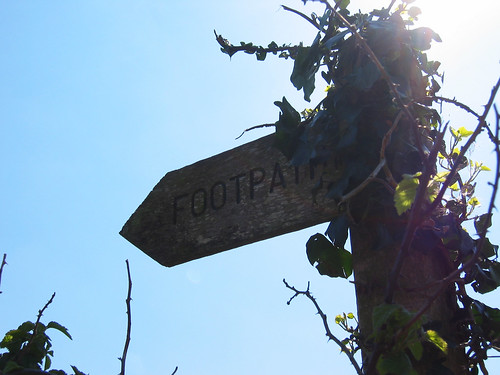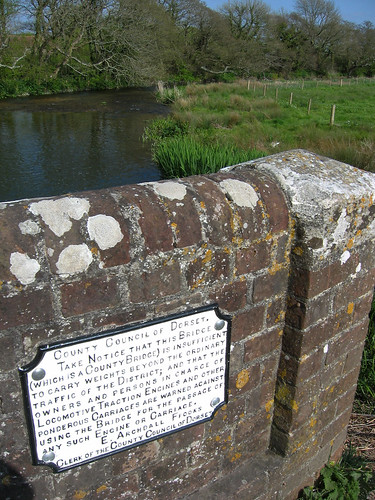It's a catch-up, notes sort of day.
1. Something I didn't mention
when writing about Richard Powers's
The Echo Maker (2006) Saturday is how well he captures the mix of hopelessness and comfort that composes life in a small town. Now, the Nebraska town in which he sets his story isn't nearly as small as the town I grew up in, but I recognize the similarities: for some people--especially for anyone wishing to escape pernicious family ties or unsavory aspects of personal history--the gravitational pull of such towns can be astonishing, drawing back even those who've thought themselves long escaped, and crushing those who never reached orbit in the first place. Yet others--smart, capable, interesting people--are able to find complete happiness there, taking real comfort in knowing and being known. A line could be drawn from
Hawthorne (if not earlier) through
Thomas Wolfe to many a present-day author, in which small towns are depicted as hopeless cesspools of gossip and stunted personalities. The reality is far more complicated, with plenty of goodness, liveliness, and open thought leavening the insularity; Powers gets the combination just right.
2. A similarly strong sense of place pervades Russell Hill's
Robbie's Wife (2007), a novel from
Hard Case Crime about an American screenwriter who, stymied in both writing and life, flies off to rural England to attempt to get himself and his work going again. He winds up staying at a farmhouse in rural Cornwall owned by a Shakespeare-quoting sheep farmer, Robbie, and his wife and son. I suppose it's not a spoiler if I tell you that in a crime novel named
Robbie's Wife--which features the following lines on its cover:
"Come on, Jack Stone, dance with me again," she said. The jukebox was playing another Sinatra song.
"Go ahead, Jack," Robbie said. "Warm her up for me."
I think that, at that moment, I could have killed him.
--the visiting screenwriter does in fact kill Robbie for his wife? And that things go downhill from there? The how and the consequences, of course, are the reason to keep reading, but along the way author Russell Hill draws some memorable characters and strikingly evokes the sheep-dotted Cornish countryside, from its down-at-heel bars to its slashing, chilly rains to its opportunistic tinkers. If there's not quite the full examination of guilt that I might have expected, the plot twists more than make up for it--and if guilt and compulsion are what I'm looking for, there's always some
Dostoevsky on the shelf, isn't there?
3. Speaking of plotting, the newest book from Hard Case Crime, Gil Brewer's
The Vengeful Virgin (1958), which I read today in the hours that I didn't spend watching
a snowy Opening Day at Wrigley Field, is tightly plotted throughout. It's a flawless crime novel, starting with a simple story--take an old man dying of a respiratory ailment, his hot young stepdaughter, and a television repairman, stir--and adding plenty of unexpected complications. I was reading in the rocking chair in the front room, and as the final plot twist unfolded, I actually stopped cold in my rocking--the equivalent of gasping with my rocker--unable to pay attention to anything but the book. Now
that's good crime writing.
4. The Vengeful Virgin features a scene wherein characters have sex on an absurdly large pile of money, something that happens also in
Scott Smith's
A Simple Plan (1993), another novel that gets small-town life just right. The narrator and his wife are doing all right in their rural midwestern town until, by sheer accident, they see their chance at escape. One simple decision, easily reversed, leads to another, irreversible, and Smith sets his contraption of a novel in motion. Along the way, he ratchets up the opressive small-town claustrophobia--it's yet another goad to his characters, another indicator that, as they commit bad act after bad act, the doors behind them are now slammed shut, while the doors ahead are not ones that any right-thinking person would ever contemplate opening. Though Smith's view of causality, and even destiny, can seem mechanistic, both here and in his follow-up,
The Ruins,
A Simple Plan, is, like
The Vengeful Virgin, not a book you can easily put down once you've started it.
5. Returning to baseball: Sam Walker's
Fantasyland (2006),
which I wrote about briefly a few weeks ago, is exactly the sort of fun that I look for in a season-opening baseball book. It tells the story of Walker's finagling his way into the nation's toughest fantasy baseball league, then spending a summer doing nothing but trying to win it. He hires two assistants and makes shameless use of his sportswriting connections in an attempt to get inside dirt on players' health, attitudes, and prospects. The best parts of the book are when he talks to actual players about their roles on his team. At one point, he accidentally upsets
Jacque Jones by letting on that he doesn't think Jones is all that good a player; at another, he makes Jones's day by giving him a t-shirt and a Player-of-the Month trophy. But my favorite scene in the book is this exchange with then-
Twins first baseman
Doug Mientkiewicz:
Most players, when I tell them they're on my Rotisserie team, respond with a nod or a smirk or something diplomatic like "cool." But after listening to my standard spiel, Mientkiewicz says something unusual.
"Sorry to hear that."
I laugh, assuming it's a joke. It's not.
"I tell everybody the same thing when they say I'm on their fantasy team," he says. "I'm like, 'Well, you're an idiot.' There are so many guys I'd take over me."
. . . . .
"I'm going through a stretch right now where I look out from the plate, and I see a big glove," he tells me. "Unless I hit it over the fence, it seems like everyone's catching it." Still, he says, he's sixty points ahead of where he was this time last year when he finished at .300, "so let's not panic."
A this I dig through my notes and pull out something I never intended to show him: a list of possible Mientkiewicz trades that I've been kicking around. In general, the idea of asking a professional athlete to help you expunge him from your fantasy roster seems like a good way to get smacked in the head. But for some reason I get the feeling Mientkiewicz is the exception.
I hand him the list.
"What do you think," I ask, tentatively.
"If you want power, Jody Gerut's a good one, he's going to hit twenty homers," Mientkiewicz says, scanning the list. "Jose Cruz is going to hit, too, not for average but a lot of pop. Lawton's having a great year, too, as long as he stays healthy."
When he's finished, I hand him a jersey.
"Team T-shirts? All right!"
As I turn to go, Mientkiewicz returns to his Gatorade spittoon but not before shouting out some parting advice. "Hopefully you'll get me traded sooner rather than later."
Up to that point, I'd never been a Mientkiewicz fan, but how can I not be one now? Go, Dougie Baseball!
6. Finally, appropos of nothing, two bits from
Penelope Fitzgerald's biography of her father and his brothers,
The Knox Brothers (2000). Fitzgerald's father,
Edmund Knox, was a longtime editor of
Punch, while his brother
Dillwyn was a classicist and codebreaker who figured out the German's Enigma machine and his brothers Wilfred and
Ronald were, respectively, prominent Anglican and Catholic clergymen. Her joint biography of the four is a wonderful, loving portrait of lives and times, a celebration of both particular people and of a deeply intellectual and questing way of life that seems, at this remove, to have been surprisingly common in the
Edwardian era.
I thought I'd share two parts that stood out for me. The first is a limerick written by Ronald, later to be a Catholic priest, when he was young:
There was a young man who sad: "Damn!"
I have suddenly found that I am
A creature that moves
On predestinate grooves,
Not a bus, as one hoped, but a tram.
According to Fitzgerald, Ronald, a railfan as a boy, "used to say later that he supposed he must have written this, but regretted the implied betrayal of the Birmingham tram system."
And then there's a story about
Arthur Conan Doyle that I think
you Holmes fans might enjoy. The boys, when young, developed
a keenly critical spirit, [and] they detected a number of inaccuracies, even downright contradictions, in the Sherlock Holmes stories, and sent a list of them to Conan Doyle in an envelope with four dried orange pips, in allusion to the threatening letter in The Sign of Four.
Conan Doyle, to their dismay, did not respond. But years later, after Ronald published
Studies in the Literature of Sherlock Holmes (1911), which began the
Sherlockian study of the Holmes stories, he did write:
I cannot help writing to tell you of the amusement--and also the amazement with which I read you article on Sherlock Holmes. That anyone should spend such pains on such material was what surprised me. Certainly you know a great deal more about it than I do, for the stories have been written in a disconnected (and careless) way, without referring back to what had gone before. I am only pleased that you have not found more discrepancies, especially as to dates. Of course as you seem to have observed, Holmes changed entirely as the stories went on. In the first one, the "Study in Scarlet," he was a mere calculating machine, but I had to make him more of an educated human being as I went on with him. He never shows heart save in the play--which one of your learned commentators condemned truly as a false note.
One point which has not been remarked by the learned Sauwosch . . . is that in a considerable proportion of the stories--I daresay a quarter--no legal crime has been committed at all. Another point--one of the few in which I feel satisfaction but which I have never seen mentioned--is that Watson never for one instant as chorus and chronicler transcends his own limitations. Never once does a flash of wit or wisdom come from him. All is remorselessly eliminated so that he may be Watson.
On days when insight seems far or fleeting, perhaps it would be good to remember that even Watson, artificially stunted as he was,
got to enjoy going along with Holmes on his investigations. There are certainly worse ways one could spend one's days.







